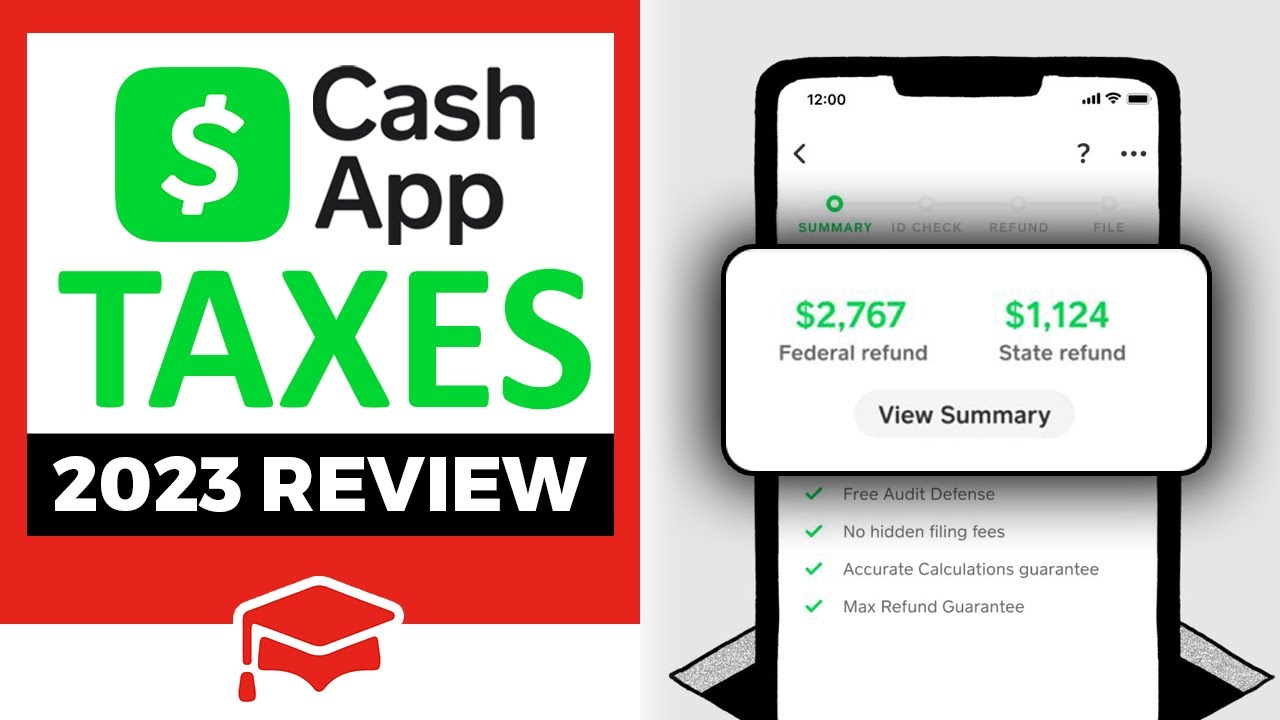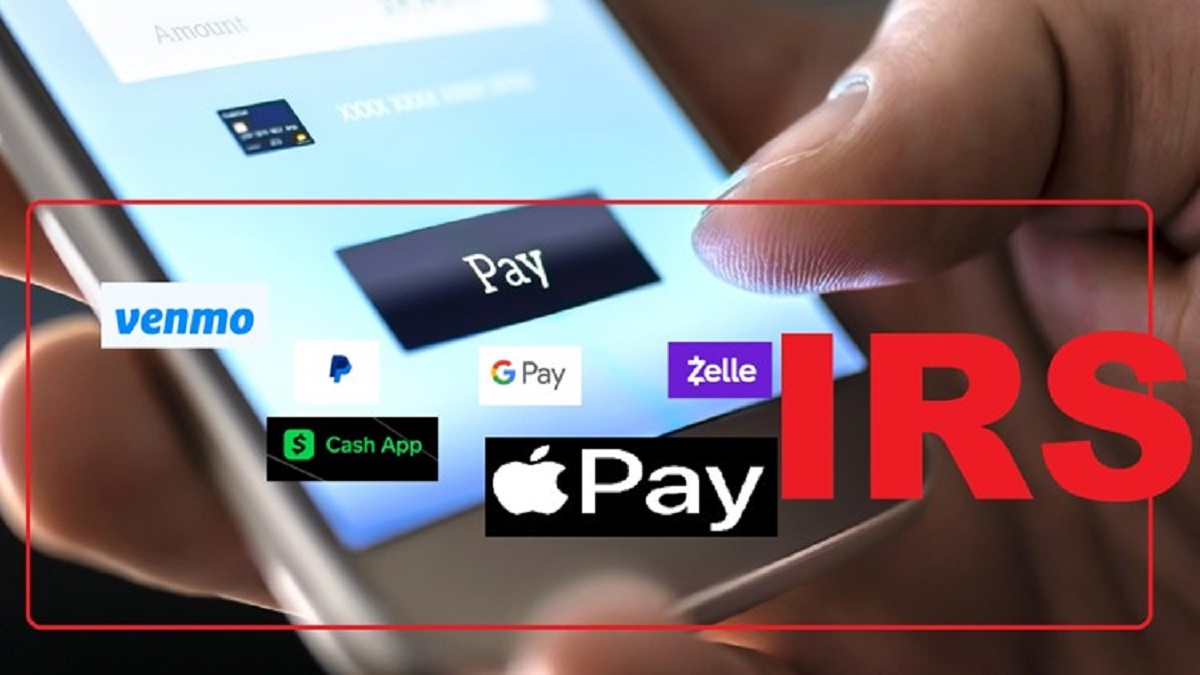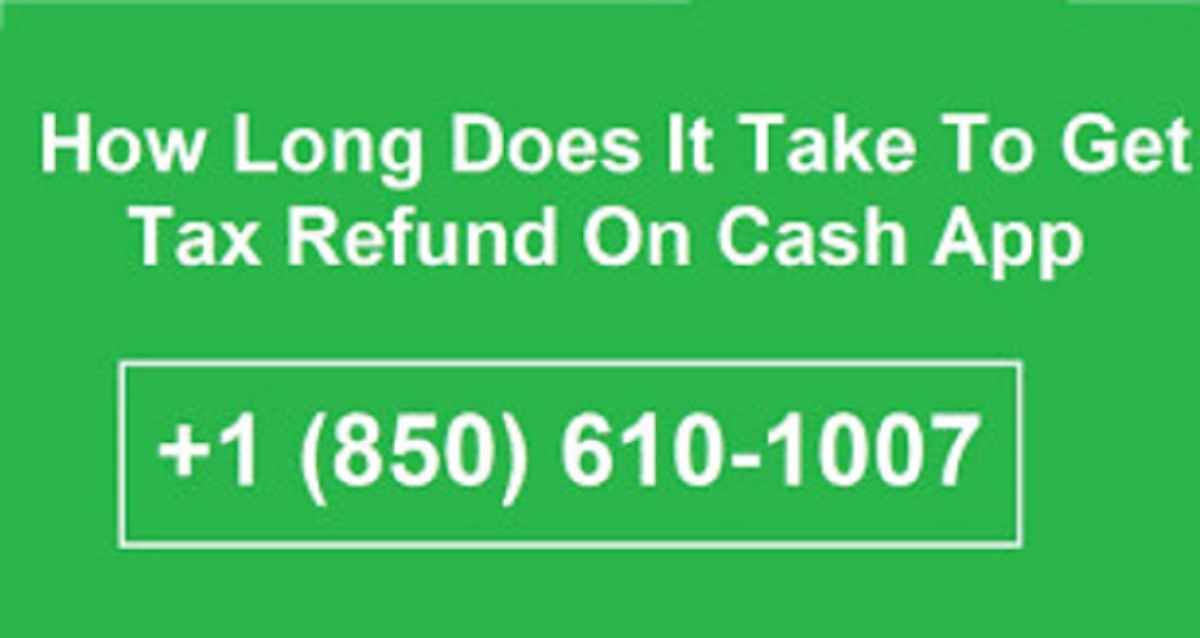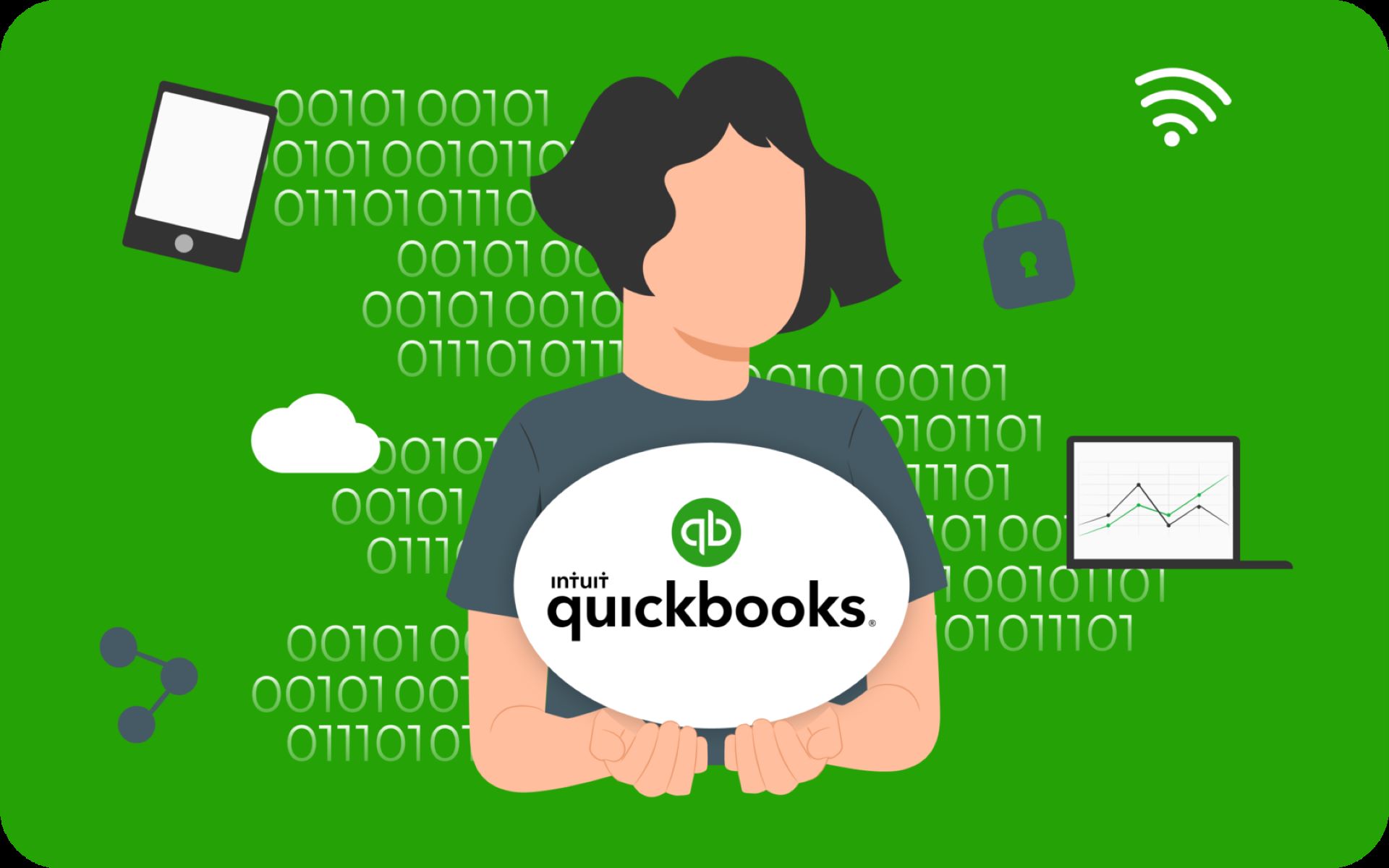What is Cash App?
Cash App is a popular mobile payment service that allows you to send and receive money from friends, family, or businesses with just a few taps on your smartphone. Developed by Square Inc., Cash App offers a convenient way to handle transactions without the need for physical cash or credit cards.
With Cash App, users can link their bank accounts or debit cards to the app and easily transfer funds. Whether you need to split a dinner bill, pay rent to your landlord, or send money to a loved one, Cash App provides a user-friendly platform to streamline these transactions.
In addition to person-to-person transfers, Cash App also offers other features such as a Cash Card, which works like a traditional debit card and allows you to make purchases at participating retailers or withdraw cash from ATMs.
Furthermore, Cash App provides users with the option to buy, sell, and hold Bitcoin, a popular form of cryptocurrency. This feature allows individuals to potentially invest in the cryptocurrency market and take advantage of its potential growth.
One of the key advantages of Cash App is its simplicity and ease of use. The interface is intuitive, making it accessible to both tech-savvy users and those who may be less familiar with mobile payment apps.
Cash App is available for both iOS and Android devices, making it accessible to a wide range of users. Whether you’re using an iPhone, iPad, or Android smartphone, you can download the app from the respective app stores and start sending and receiving money right away.
With its increasing popularity and expanding features, Cash App has become an essential tool for many individuals and businesses to manage their finances and make secure transactions.
Next, let’s delve into how Cash App works and the steps involved in using this convenient mobile payment service.
How Does Cash App Work?
Cash App operates as a peer-to-peer payment service, allowing users to send and receive money seamlessly. Here’s a breakdown of how Cash App works:
- Setting up an Account: To get started, download the Cash App from the App Store or Google Play Store and create an account using your email address or phone number.
- Linking Your Bank Account or Debit Card: After creating an account, you’ll have the option to link your bank account or debit card to Cash App. This step is necessary to add funds to your Cash App balance or withdraw money.
- Sending Money: To send money to someone, open the Cash App and enter the amount you want to send. You can choose between sending to a phone number, email address, or Cashtag (a unique username). Confirm the details and tap “Pay” to complete the transaction.
- Receiving Money: When someone sends you money through Cash App, you’ll receive a notification. The funds will be added to your Cash App balance, and you can choose to keep them there or transfer them to your linked bank account.
- Cash Card: Cash App also offers a physical Cash Card that you can order. It works like a traditional debit card and is linked to your Cash App balance. You can use it to make purchases or withdraw cash from ATMs.
- Bitcoin and Investing: Cash App allows users to buy, sell, and hold Bitcoin directly within the app. This feature provides an opportunity for users to invest in cryptocurrency and potentially benefit from its value appreciation.
It’s worth noting that Cash App charges a minimal fee for certain transactions, such as instant transfers and receiving payments for business purposes. However, personal transactions between individuals are generally free.
Security is a top priority for Cash App, and they implement various measures to ensure the safety of user transactions. These include encryption, two-factor authentication, and the ability to lock your Cash App account with a PIN or fingerprint.
In summary, Cash App simplifies the process of sending, receiving, and managing money. Its user-friendly interface, convenient features like the Cash Card, and the ability to buy Bitcoin make it a versatile mobile payment solution for individuals and businesses alike.
Understanding Taxes on Cash App
When it comes to using Cash App for financial transactions, it’s important to have a clear understanding of how taxes may come into play. Here are some key points to keep in mind:
Taxable Income: Any income received through Cash App, whether it’s from personal payments or business transactions, may be considered taxable income. This includes money received from friends, family, or customers.
Reporting Requirements: If your annual gross income from Cash App transactions exceeds a certain threshold (usually set by your country’s tax laws), you may be required to report it on your tax return. It’s essential to familiarize yourself with your jurisdiction’s tax regulations and consult a tax professional if needed.
Business Use: If you use Cash App for business purposes, such as accepting payments for goods or services, you should keep track of your income and expenses. This will allow you to accurately report your business earnings and claim any eligible deductions.
Form 1099-K: In the United States, Cash App is required to issue a Form 1099-K to users who receive more than a specific threshold of payments during a tax year. This form reports the total amount of payments received and is used for tax reporting purposes. It’s important to review the information on your Form 1099-K and ensure its accuracy.
Tax Deductions: As a Cash App user engaged in business activities, you may be eligible to claim certain tax deductions. These deductions can help offset your taxable income and may include expenses related to your business operations, such as equipment purchases, advertising costs, or home office expenses. Consult a tax professional to determine which deductions you qualify for.
Keeping Records: To effectively manage your taxes, it’s crucial to keep accurate records of your Cash App transactions. This includes documenting income received, business expenses, and any supporting documentation, such as receipts. Staying organized throughout the year will make it easier to track your financial activity and ensure compliance with tax regulations.
Consult a Tax Professional: The tax implications of Cash App use can vary based on your specific circumstances and tax jurisdiction. Consulting with a qualified tax professional will provide you with personalized guidance tailored to your situation and help ensure that you meet all tax obligations.
By understanding the taxation aspects of using Cash App and staying proactive in your record-keeping and reporting, you can effectively manage your tax obligations and avoid any potential issues with tax authorities.
Do I Have to Pay Taxes on Cash App?
The question of whether you have to pay taxes on Cash App transactions is dependent on various factors, including the nature of the transactions and your tax jurisdiction. Here are some important considerations:
Personal Transactions: If you use Cash App primarily for personal transactions, such as sending money to friends or family, these transactions are generally not subject to income tax. The Internal Revenue Service (IRS) in the United States considers personal payments as non-taxable gifts.
Business Transactions: If you use Cash App for business purposes, such as accepting payments for goods or services you provide, these transactions may be subject to taxation. The income you receive through these business activities is typically considered taxable income and must be reported on your tax return.
Thresholds and Reporting Requirements: Each country has specific thresholds for reporting income from platforms like Cash App. If your annual gross income from Cash App transactions exceeds the specified threshold, you may be required to report it on your tax return and potentially pay taxes on the income generated.
Form 1099-K: In the United States, Cash App is required to issue a Form 1099-K to users who meet certain criteria, such as receiving a certain amount of payments within a tax year. This form reports the total payment volume received by the user and is used for tax reporting purposes. It’s essential to review the information on your Form 1099-K and ensure its accuracy when preparing your taxes.
Tax Deductions: If you use Cash App for your business, you may be eligible to claim tax deductions for certain business expenses. These deductions can help reduce your taxable income and potentially lower your tax liability. It’s important to keep detailed records and consult with a tax professional to determine which deductions you qualify for and properly claim them.
Tax Jurisdiction: Tax laws and regulations vary from country to country and even among different regions within a country. It’s crucial to familiarize yourself with the tax laws and regulations specific to your jurisdiction to ensure compliance and avoid any potential penalties or fines.
Ultimately, whether you are required to pay taxes on Cash App transactions depends on the specific circumstances of your transactions, your tax jurisdiction, and the applicable tax laws and regulations. It’s advisable to consult with a tax professional to understand your tax obligations and ensure proper compliance with tax authorities.
Reporting Cash App Transactions for Taxes
When it comes to reporting Cash App transactions for tax purposes, it’s essential to maintain accurate records and ensure compliance with your jurisdiction’s tax regulations. Here are some key steps to follow:
1. Keep Detailed Records: Start by keeping thorough and organized records of your Cash App transactions. This includes documenting income received, business expenses, and any supporting documentation like receipts or invoices. Staying organized throughout the year will make tax reporting much smoother.
2. Understand Your Thresholds: Familiarize yourself with the reporting thresholds set by your tax jurisdiction. If your annual gross income from Cash App transactions exceeds the specified threshold, you’ll likely need to report it on your tax return.
3. Review Your Form 1099-K: In the United States, Cash App is required to issue a Form 1099-K to users who meet certain criteria. Take the time to carefully review the information on your Form 1099-K, which reports the total payment volume received. Ensure its accuracy and use it as a reference when preparing your tax return.
4. Consult a Tax Professional: If you’re unsure about how to report your Cash App transactions or have complex tax situations, seek guidance from a qualified tax professional. They can provide invaluable advice tailored to your specific circumstances, ensuring that you accurately report your income and claim any available deductions.
5. Choose the Right Tax Form: Select the appropriate tax form for reporting your Cash App transactions. Depending on your business structure, you may need to file a Schedule C (Profit or Loss from Business) or use another relevant tax form. Again, a tax professional can help you determine the correct form to complete.
6. Report Business Expenses: If you use Cash App for business purposes, carefully document and report your business expenses. This includes any eligible deductions related to your business operations. Common deductions may include office supplies, advertising costs, mileage, or professional services. Remember to retain the necessary receipts and supporting documentation.
7. Be Mindful of Tax Deadlines: Stay aware of tax deadlines specific to your jurisdiction. Failing to meet these deadlines can result in penalties or other consequences. Mark the dates on your calendar or set reminders to ensure timely filing of your tax return.
8. Review and Double-Check: Before submitting your tax return, review it thoroughly for accuracy. Double-check all figures, calculations, and supporting documentation. Mistakes or omissions can lead to audits or delays in processing your return.
By following these steps and seeking professional advice when necessary, you can ensure that you accurately report your Cash App transactions and meet your tax obligations in a timely and compliant manner.
Keeping Track of Cash App Income and Expenses
To effectively manage your finances and stay compliant with tax regulations, it’s crucial to keep track of your Cash App income and expenses. Here are some tips for effectively monitoring your Cash App transactions:
1. Separate Personal and Business Transactions: If you use Cash App for both personal and business purposes, it’s essential to separate these transactions. Keep separate records and accounts to differentiate personal income from business income. This will make it easier to track and report your business-related earnings.
2. Use Accounting Software or Apps: Consider utilizing accounting software or mobile apps that can help you track your Cash App transactions. These tools can automate the process, categorize income and expenses, and generate reports that simplify tax preparation.
3. Maintain Detailed Records: Keep meticulous records of all your Cash App transactions. This includes documenting the amounts received or sent, the purpose of the transaction, the date, and any relevant details. Save electronic receipts and consider organizing them in folders for easy access.
4. Review Transaction History: Regularly review your Cash App transaction history within the app. This will allow you to identify any discrepancies or errors and take appropriate actions. It’s a good practice to reconcile your transaction history with your financial records periodically.
5. Capture Business Expenses: If you use Cash App for business purposes, accurately track and record your business expenses. This includes any costs related to your products or services, advertising and marketing expenses, office supplies, and professional fees. Be sure to retain copies of receipts as proof of your business expenses.
6. Categorize Transactions: Assign appropriate categories to your Cash App transactions. Categorizing income and expenses will help you analyze your spending patterns and identify potential areas for cost-saving or optimization. It will also simplify the process of generating financial reports.
7. Regularly Reconcile Accounts: Reconcile your Cash App balance with your bank account or other associated financial accounts. This ensures that all transactions are properly recorded and accounted for. Any discrepancies should be investigated and resolved promptly.
8. Seek Professional Guidance: If you are uncertain about proper record-keeping or need guidance on managing your finances and taxes, consult with an accountant or tax professional. They can provide expert advice and help ensure that you maintain accurate records and meet all tax obligations.
By implementing these practices and regularly monitoring your Cash App income and expenses, you can stay organized, make informed financial decisions, and be well-prepared for tax reporting and filing.
Tax Deductions for Cash App Business Use
If you use Cash App for your business, it’s important to be aware of the tax deductions that you may be eligible to claim. These deductions can help reduce your taxable income and potentially lower your overall tax liability. Here are some common tax deductions for Cash App business use:
1. Home Office Expenses: If you use a portion of your home exclusively for your business, you may be able to deduct a portion of your home expenses. This can include expenses such as rent, mortgage interest, utilities, and home insurance. The deduction is based on the percentage of your home used for business purposes.
2. Office Supplies and Equipment: The cost of office supplies, such as stationery, ink cartridges, and postage, can be deducted. Additionally, if you purchase equipment for your business, such as a computer or printer, you may be able to deduct the cost of these items. Keep track of these expenses and retain receipts for proper documentation.
3. Business Insurance: Premiums for business insurance can be deductible. This includes general liability insurance, professional liability (errors and omissions) insurance, and business property insurance. Deductible insurance expenses help protect your business and offset your taxable income.
4. Advertising and Marketing Expenses: Any expenses related to advertising and marketing your business can generally be deducted. This includes online advertisements, print media, website development costs, and social media marketing expenses. Keep records of these expenses and highlight their direct correlation to your business promotion.
5. Vehicle Expenses: If you use your personal vehicle for business-related purposes, you may be eligible to deduct vehicle expenses. This can include mileage for business travel, parking fees, tolls, and a portion of vehicle-related expenses such as gas, maintenance, and insurance. Keep a mileage log and proper documentation to substantiate these deductions.
6. Professional Services: Fees paid for professional services, including legal and accounting services, can be deductible. If you hire a lawyer or accountant for your business, those expenses can be claimed as deductions. Make sure to keep records of any invoices or receipts for these services rendered.
7. Education and Training: The costs associated with education and training directly related to your business can be deductible. This includes attending seminars, workshops, conferences, or online courses to enhance your professional skills or expand your business knowledge. These expenses can help improve your business and reduce your taxable income.
8. Travel and Entertainment: If you incur travel expenses or entertainment expenses for business purposes, they may be deductible. This can include expenses such as airfare, accommodations, meals, and entertainment for potential clients or business meetings. Keep detailed records, including receipts and documentation of the business purpose for these expenses.
Note that tax deductions can vary depending on your specific circumstances and tax jurisdiction. It’s important to consult with a tax professional who can provide tailored advice based on your situation and ensure that you claim all eligible deductions.
By taking advantage of these tax deductions for Cash App business use, you can potentially reduce your taxable income and lower your overall tax obligation. However, ensure that you keep thorough records, follow proper documentation procedures, and consult a tax professional to maximize your deductions while staying compliant with tax laws.
Filing Taxes for Cash App Income
When it comes to filing taxes for income received through Cash App, it’s important to accurately report your earnings to ensure compliance with tax regulations. Here are some key steps to consider when filing taxes for Cash App income:
1. Gather Your Documents: Start by gathering all the necessary documents related to your Cash App income. This includes your transaction history, any Form 1099-K received from Cash App, and records of any applicable business expenses.
2. Determine Your Tax Filing Status: Determine your tax filing status based on your specific circumstances. Common filing statuses include Single, Married Filing Jointly, Married Filing Separately, Head of Household, or Qualifying Widow(er) with Dependent Child. Your filing status will affect your tax rates and deductions.
3. Report Cash App Income: If your Cash App income exceeds the reporting threshold specified by your tax jurisdiction, you’ll need to report it on the appropriate tax form. Typically, this will be Form 1040 in the United States. Include the total amount of income received through Cash App on the appropriate line of your tax form.
4. Report Other Income: If you have income from other sources, such as employment or investments, be sure to report that as well. Include all sources of income on your tax return to provide a comprehensive overview of your earnings.
5. Account for Business Expenses: If you use Cash App for your business, account for any eligible business expenses. Deductible expenses may include office supplies, equipment purchases, advertising costs, and business-related travel expenses. These deductions can help offset your taxable income.
6. Consider Professional Assistance: If you have a complex tax situation or are unsure about how to accurately report your Cash App income, it may be beneficial to seek the assistance of a tax professional. They can guide you through the tax filing process, ensure proper compliance, and identify all eligible deductions.
7. File and Pay Taxes: Once you have completed your tax return and verified its accuracy, file your tax return with the appropriate tax authority by the designated deadline. If you owe taxes, make sure to submit your payment along with your tax return to avoid penalties or interest charges.
8. Retain Documentation: After filing your taxes, retain all relevant documentation, including copies of your tax return, transaction history, Form 1099-K, and receipts for business expenses. Keeping organized records will be helpful for future reference and potential audits.
Remember, tax laws and regulations can vary depending on your jurisdiction. It’s essential to familiarize yourself with the specific tax requirements applicable to your situation and consult with a tax professional for personalized guidance.
By following these steps and accurately reporting your Cash App income, you can fulfill your tax obligations and ensure compliance with tax authorities.
Tips for Managing Taxes on Cash App
Managing taxes on Cash App may seem daunting, but with proper preparation and organization, you can streamline the process. Here are some helpful tips to effectively manage your taxes when using Cash App:
1. Understand Tax Regulations: Familiarize yourself with the tax laws and regulations that apply to your jurisdiction. Each country and region may have specific rules regarding reporting requirements, thresholds, and applicable deductions. Stay up to date with any changes in tax legislation to ensure accurate compliance.
2. Maintain Accurate Records: Keep detailed records of your Cash App transactions, including income received, business expenses, and supporting documentation such as receipts. Use accounting software or mobile apps to track your transactions and categorize them appropriately. Accurate records will help when preparing your tax return and reduce the likelihood of errors or inaccuracies.
3. Separate Personal and Business Transactions: If you use Cash App for both personal and business purposes, keep separate records and bank accounts. This will make it easier to track and report your business earnings and expenses, ensuring that you don’t mix personal and business finances.
4. Stay Organized Throughout the Year: Don’t wait until tax season to start organizing your financial records. Keep up-to-date records throughout the year, reconciling your Cash App transactions regularly. This will minimize stress and make tax preparation more manageable when the time comes.
5. Consult with a Tax Professional: If you have complex tax situations or are unsure about certain tax obligations, seek advice from a tax professional. They can provide personalized guidance, help you maximize your eligible deductions, and ensure compliance with tax laws.
6. Educate Yourself on Deductible Expenses: Familiarize yourself with the tax deductions available for your Cash App business use. Understand the expenses that qualify for deductions, such as home office expenses, equipment purchases, advertising costs, and business insurance premiums. Knowing what deductions you’re eligible for will help reduce your taxable income.
7. Stay Proactive with Estimated Tax Payments: If you expect to owe a significant amount in taxes, consider making estimated tax payments throughout the year. This can help you avoid any potential penalties or interest charges and ensure you meet your tax obligations in a timely manner.
8. Seek Continuing Education: Tax laws and regulations are constantly evolving. Stay informed by attending tax seminars, webinars, or workshops. This will help you stay up to date with any changes that may impact your tax obligations and ensure that you’re taking advantage of all available tax-saving opportunities.
By following these tips, you can effectively manage your taxes on Cash App. Remember, proactive organization, staying informed, and seeking professional guidance when needed will help you navigate the tax landscape with confidence.
Final Thoughts
Managing taxes on Cash App may seem like a complex process, but with proper knowledge and preparation, you can confidently navigate your tax obligations. It’s essential to understand the tax regulations specific to your jurisdiction, keep accurate records of your Cash App transactions, and seek professional advice when needed.
Remember to separate your personal and business transactions to ensure accurate reporting. By utilizing accounting software or mobile apps, you can easily track your income and expenses, categorize transactions, and generate reports that simplify tax preparation.
Take advantage of the tax deductions available for your Cash App business use. Familiarize yourself with eligible expenses, such as home office expenses, equipment purchases, advertising costs, and business insurance premiums. Documenting these expenses and retaining the necessary documentation will help reduce your taxable income and lower your overall tax liability.
Stay proactive throughout the year by staying organized, reconciling your Cash App transactions regularly, and keeping up-to-date records. By starting early and maintaining good financial habits, tax season will be more manageable and less stressful.
Remember, tax laws and regulations are subject to change, so staying informed is crucial. Consult with a qualified tax professional who can provide personalized advice and guidance based on your specific circumstances. They can ensure that you meet all tax obligations and identify all available deductions to optimize your tax situation.
By following these tips and taking a proactive approach to managing taxes on Cash App, you can streamline the process, maximize deductions, and confidently fulfill your tax obligations. With proper planning and organization, you can focus on running your business or enjoying the convenience of Cash App, knowing that your tax affairs are in order.

























